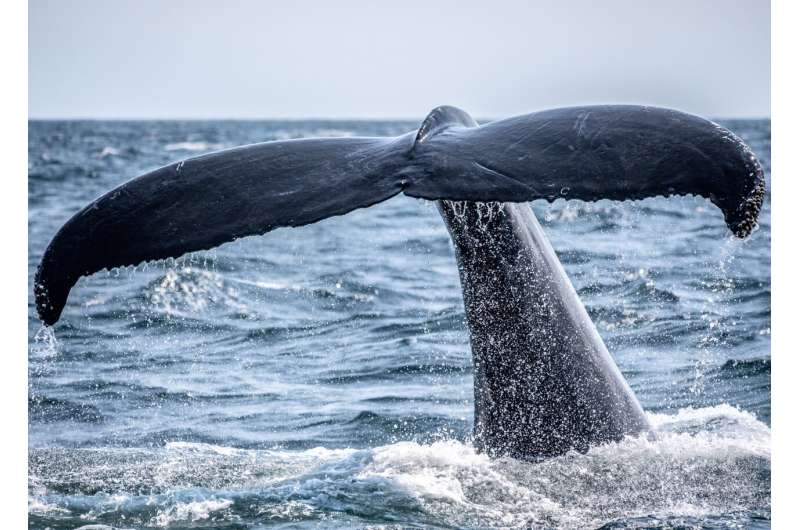This article has been reviewed according to Science X's editorial process and policies. Editors have highlighted the following attributes while ensuring the content's credibility:
fact-checked
peer-reviewed publication
trusted source
proofread
Whale calves found stealing milk from other mothers

Research from The University of Western Australia has found some southern right whale calves are little "milk thieves."
Adjunct Research Fellow Dr. Kate Sprogis, from UWA's Oceans Institute and School of Biological Sciences, and Dr. Fredrik Christiansen, from Aarhus University in Denmark, were co-authors of the study published in Mammalian Biology.
Dr. Sprogis explained that allosuckling occurs when a baby suckles from another mother, which isn't its own biological mother.
"Allosuckling has been observed in seals and land mammals, including deer, reindeer and giraffe, but not quantified in large whales," Dr. Sprogis said. "The behavior observed off the south coast of Australia appeared to be a direct and intentional movement from the calf and the non-biological lactating mother was generally evasive."
Allosuckling has potential benefits for the calf as it may gain extra milk to help it grow in size and strength, but it may be disadvantageous to the non-biological mother as she needs to provide milk to her own offspring.
"Whales have a capital breeding strategy, where during the nursing season the mother does not feed and is not able to replenish her lost energy reserves," Dr. Sprogis said. "And at the end of the nursing season the lactating mothers need to migrate back to their feeding grounds. For southern right whales, this is a long migration from Australia all the way to sub-Antarctic Islands or to Antarctica where the mothers can refuel their energy by feeding on small invertebrates like copepods and krill."
Research to understand the behavior of southern right whales is important as the mammals are listed as endangered under the Australian Environment Protection and Biodiversity Conservation Act and their numbers remain below their estimated historical abundance and range.
Dr. Sprogis said it was possible that allosuckling also occurred in other related whale species, such as the critically endangered North Atlantic right whale.
More information: Kate R. Sprogis et al, Allosuckling in southern right whale calves, Mammalian Biology (2024). DOI: 10.1007/s42991-023-00392-1
Journal information: Mammalian Biology
Provided by University of Western Australia














